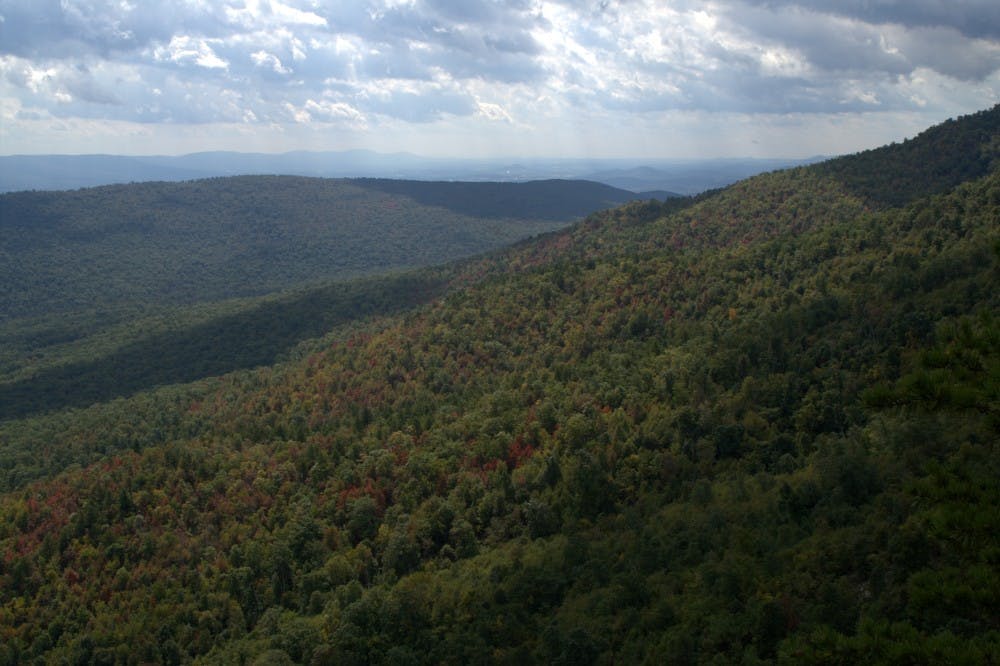The Atlantic Coast Pipeline — which when completed will be a 600-mile route stretching through West Virginia, Virginia and North Carolina to transport natural gas — is currently facing strong resistance from environmental advocates.
All three of the states’ governors have expressed approval of the pipeline. However, several organizations in communities which the pipeline will pass through are speaking strongly against the project and publicly protesting the pipeline’s construction.
Aaron Ruby, media relations manager for Dominion Energy, said the project will result in various economic advantages for all the states where construction will take place.
“Demand for natural gas will grow significantly over the next twenty years in Virginia and North Carolina,” Ruby said. “About 80 percent of the natural gas transported through [the pipeline] is going to be used for electricity generation.”
Natural gas is in short supply in certain regions within Virginia and North Carolina, Ruby said. There are currently not enough pipelines transporting natural gas to keep up with population growth and industry operation.
According to the U.S. Department of Transportation, underground pipelines are the safest way to transport natural gas, as opposed to highway, rail or water transport.
The pipeline is currently supported by the Hampton Roads Caucus. Members of the Virginia General Assembly, including 33 district delegates — 13 Democrats and 20 Republicans — signed a joint letter addressed to Virginia Senators Mark Warner and Tim Kaine in March to express support of the pipeline.
“Without new infrastructure, the abundant, economical supplies of natural gas being produced just a few hundred miles away will remain virtually inaccessible for our communities, crippling our prospects for economic growth,” reads the letter.
The letter also indicates the environmental benefits of the pipeline.
“Natural gas, when used to produce electricity, release far less carbon dioxide than other fossil fuels,” reads the letter.
More than 215 companies, businesses and labor unions have formed The EnergySure Coalition to also voice support for the pipeline, Ruby added.
However, David Sligh, conservation director of Wild Virginia, said none of these endorsements provide sufficient grounds for the construction, due to its damage to surrounding ecosystems.
Wild Virginia is a nonprofit dedicated to protecting Virginia’s national forests and land through various forms of advocacy. Sligh said the pipeline will cause pollution and potentially damage critical water sources for Virginian mountains and wetlands.
“Other damage would be caused to streams and wetlands, especially those in the headwaters of various watersheds that have very sensitive species. While the mountain streams may be small they provide very important features that cannot be replaced,” Sligh said in an email statement. “Pollution from erosion and transport of chemicals to streams threatens drinking water supplies downstream and in groundwater wells and springs that serve hundreds of thousands of people.”
Anti-pipeline protesters, including members of the organization Friends of Nelson, also recently rallied in Richmond to condemn the proposal and its potential negative effects on surrounding communities.
The pipeline will not provide any natural gas to West Virginia, where people who would be severely impacted will not receive any benefits, Sligh said.
Sligh said he regards the pipeline proposal as “ill-conceived” and hopes the current project will be cancelled.
“If projects can't be completed without causing significant environmental damage and risks, they must be rejected, period,” Sligh said. “We will fight for correct regulatory decisions by the Forest Service, to deny the right to cross the forest, for the Federal Energy Regulatory Commission and the Corps of Engineers to reject the proposals, and for the State of Virginia to deny the Clean Water Act certification.”
In opposition, Ruby said the pipeline construction team has worked closely with the U.S. Forest Service for over a year to find a suitable route that would avoid environmentally sensitive areas.
“There are other existing pipelines that have operated safely for many years through the national forests,” Ruby said. “Using public lands for a public use to provide home heating electricity for Virginians and North Carolinians is compatible with the mission and purpose of a national forest.”
Ruby added that the pipeline right-of-way would be restored to its original condition and trees would be replanted after the construction.
The proposal is currently being reviewed by the Federal Energy Regulatory Commission. If an approval is granted, the construction would start in the summer of 2017, Ruby said.
On the other hand, Sligh said “bad administrative decisions” might be challenged in court if the proposal is accepted.







